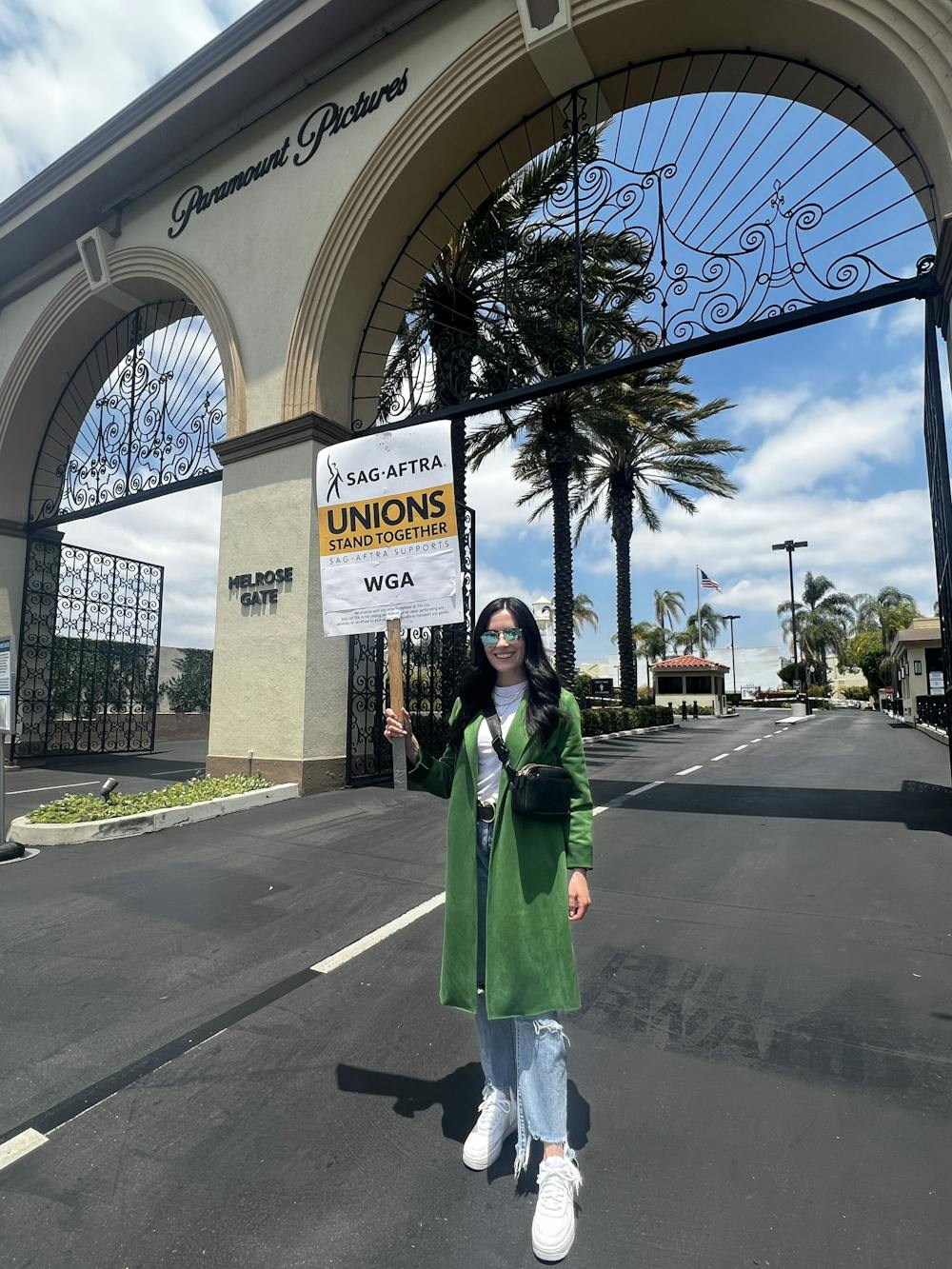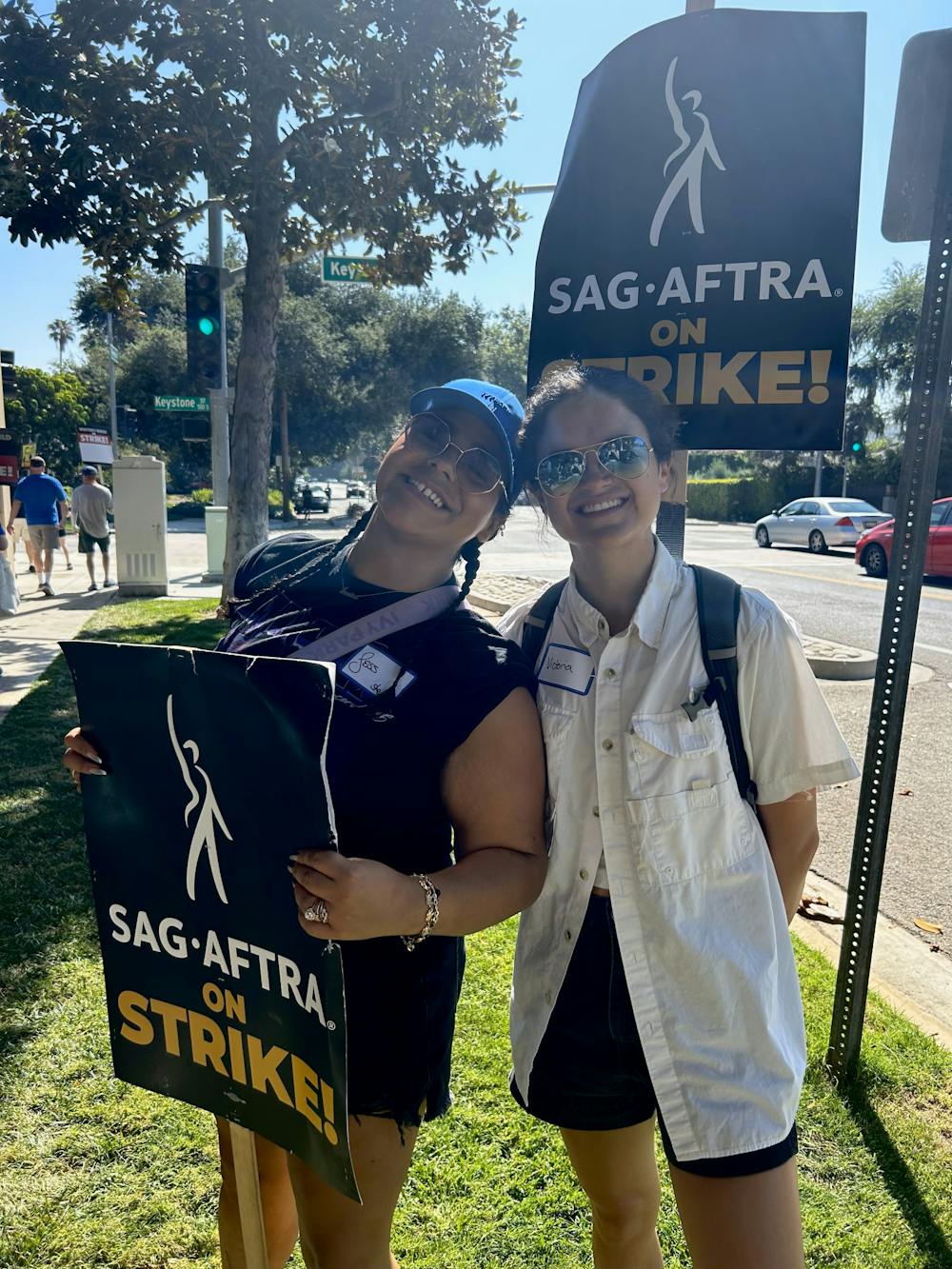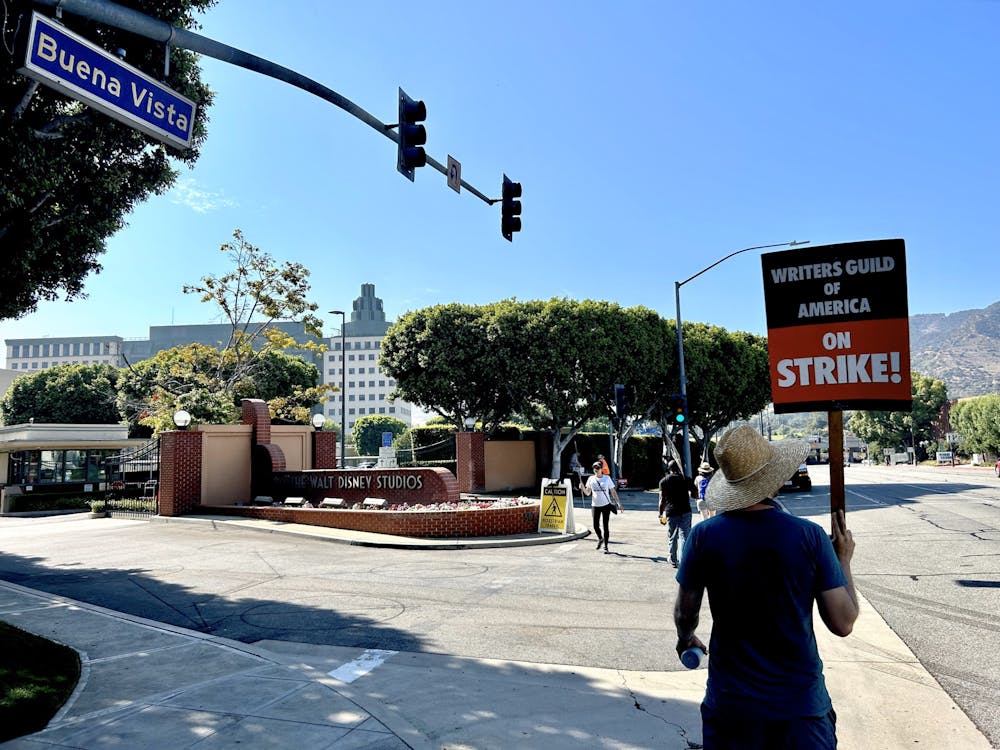Elon University junior Katie Kapp said work at the Dragonfly Agency has drastically changed as the summer has progressed. Kapp, a participant in the Elon in Los Angeles program, said her day as a modeling agency intern — which was once spent on social media outreach and client communication — now revolves around navigating the sudden halt of the entertainment industry and rippling effects across adjacent businesses.
May 2 marked the start of the Writers Guild of America strike, which on July 14 was joined by the Screen Actors Guild – American Federation of Television and Radio Artists.
For weeks, members of both the WGA and SAG-AFTRA, and their supporters, have picketed in front of major studios, including Amazon, Disney, Netflix and Universal. Scheduled picket events occur five days a week at these studios in Los Angeles.
Elon in LA, one of Elon University’s most popular Study USA programs, allows students to take classes and intern in the entertainment capital of the world.
Senior Nicole Carlton, a cinema and television arts major, interned at Eleven Three Productions throughout the summer. As a Los Angeles-based production company, Carlton reviewed scripts for possible development and created social media content for creative projects.
“When SAG went on strike, near the end of my internship, the actors were no longer allowed to use their likeness, or face, in any promotional content,” Carlton said. “That was what a lot of our TikTok and Instagram social media content ideas required, and we couldn’t really move forward with those ideas.”
The last time both unions held strikes simultaneously was in 1960 over the issue of residuals while the popularity of television rose. At the time, SAG, led by Ronald Reagan, fought to have continued payment for film work sold to television.
The unions were met with an agreement to establish residual payments for movies released in 1960 or later, which is the same structure used in the industry today.
Over 60 years later, members of both the WGA and SAG-AFTRA are once again addressing residuals during the rise of streaming services as well as the impacts of artificial intelligence in the industry.
Julia Gallagher ’12, joined the picket line as a member of SAG-AFTRA. Gallagher holds a BFA in acting from Elon and has booked roles in television, film and commercials.

“Artists are some of the most resilient people I know. We know what we are fighting for, which is a better future,” Gallagher said. “We want residuals from streaming services, and we want conversations and fair rules around AI.”
Brad Lemack, a strategic communications instructor for Elon in LA, said the need for conversations about these issues has been brewing for years and are a direct result of the rise of streaming services.
“The issues are not new, but they are generally evolving in some way,” Lemack said.
Actress Victoria Moroles, known for her roles in the movie “Plan B” and TV show “Never Have I Ever,” said the strikes are the result of an industry needing to evolve.
“It’s really for the future of our profession and for the transition of this industry,” Moroles said to Elon News Network. “I think you have to grow with the times and things have to change.”

Actress and SAG-AFTRA member Victoria Moroles (right) joins the Walt Disney Studios picket line. Moroles has starred in the Disney Channel show “Liv and Maddie,” the Hulu comedy “Plan B,” Netflix show “Never Have I Ever,” and was in seasons five and six of “Teen Wolf.”
Lemack also said that while the lack of production in Los Angeles has already had major impacts on the film industry, other businesses are also taking a hit.
“Los Angeles is an industry town with a lot of people impacted and affected by the industry, who never step on a set,” Lemack said.
According to Lemack, talent agencies, public relations firms, hair and makeup stylists, coffeeshops, transportation and catering services are just some of the businesses who have suffered from the strikes, yet there are no signs of a resolution.
“I think we are in it for the long haul, whether that is going to be for a couple of weeks or a couple of months,” Gallagher said. “In the past, we haven’t had that great of deals. Most people are hopeful that we will come out of this with most things that we want.”
Amber Moser, Elon University’s director of internships in the School of Communications, said she has provided support for Elon in LA’s summer participants and will continue to do so as students plan to participate in the fall.
Through direct interaction with former internship sites and Elon alumni, Moser has used the Elon alumni network to advise Elon in LA fall students throughout their internship search process. Moser also said that she hopes the ongoing strikes will not only have positive impacts for current employees in the industry, but also for future Elon interns.
“I think the strikes are fighting to provide better benefits for writers and actors,” Moser said. “I hope those benefits will trickle down to interns to provide more benefits to them in their experience aside from the learning and education that comes from being in an internship.”
Similar to the strikes in 1960, the film industry could go through drastic changes following the current WGA and SAG-AFTRA strikes. Those on the picket line remain hopeful and optimistic for a better future.
“I think we need to look at this as a great opportunity for students and for other industry professionals. On the other side of this, things will be better,” Lemack said. “This should be a message of empowerment.”


